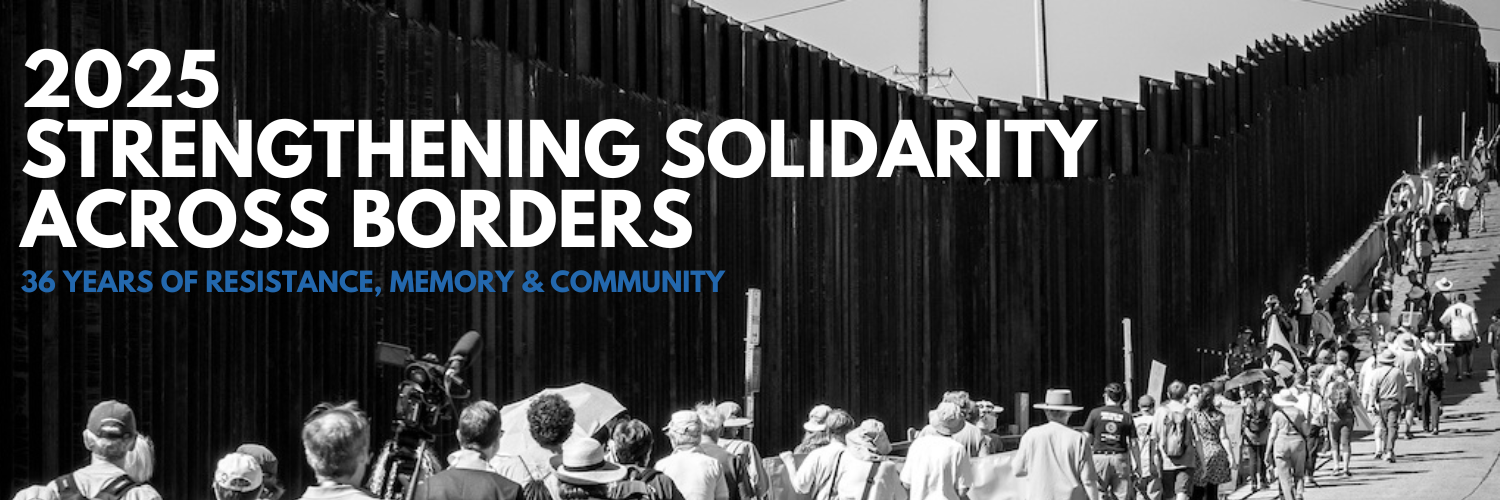Brigitte Gynther, SOA Watch Latin America Liaison
On September 27, 2017, the preliminary hearing against four of those accused of murdering Berta Caceres was postponed for the third time because of the failure of the Public Prosecutor’s Office to provide the necessary information to the legal team for Berta’s family. This raises serious questions as to why the Public Prosecutor’s Office has not provided the relevant information. Are powerful actors being protected? Over a year and a half after Berta’s murder, while eight people have been arrested, including three individuals with ties to the military and two with ties to the company DESA, those who ordered the assassination are still free. Furthermore, the repression against those who continue Berta’s work persists, indicating that the structure of violence is still in place.
The preliminary hearing against the second group of those accused was originally scheduled for August 21, 2017. However, the Public Prosecutor’s Office had not provided the lawyers for the victims nor the accused with information needed to participate in the hearing. This is a basic step to any legal process and deprives the victims of the right to truth. As a result, Victor Fernandez, the lawyer for Berta’s family and COPINH, requested that the judge order the Public Prosecutor’s Office to provide the necessary information. The judge ruled the Public Prosecutor’s Office had 48 hours to turn over the requested information and suspended the hearing until September 6th. 48 hours came and went. As September 6th approached, the necessary information still had not been provided, so the hearing was postponed again. On September 27, 2017, the hearing was suspended yet again as much information was still missing. Over a month after the judge’s order to provide the information within 48 hours, only a small amount of information had been provided. This blatant disrespect for the judge’s ruling and rule of law raises serious concerns.
What information has the Public Prosecutor’s Office failed to provide? To start with, information from the raid of DESA’s office. DESA is the company that was building the Agua Zarca Hydroelectric Project, which Berta Caceres opposed; a DESA executive and former head of security have been charged with Berta’s murder. What was seized in DESA’s offices? Why won’t the Public Prosecutor’s Office provide this? Moreover, there were irregularities even in the raid itself. The legal team of the Broad Movement for Dignity and Justice (MADJ), which represents COPINH and Berta’s family has noted that during the raid the Public Prosecutor’s Office failed to seize computers, didn’t seize or even bother to review entire folders of documentation, and didn’t stop people from entering offices without permission prior to the agents reviewing the rooms.
Another element that the Public Prosecutor’s Office has not provided is the full relevant data from Berta’s phones, computer, and other electronics seized by the authorities after her murder, as well as other telephone data related to the case. Selected phone data has been provided, but other phone data has not. Berta reported receiving phone calls and messages from people affiliated with DESA. Why hasn’t this data been fully reported? What else has been excluded and why? This is especially important given that in the initial hearings, the government’s case seemed to be built primarily on phone data.
This is not the first time the Public Prosecutor’s Office has tried to keep information secret. Originally the case was declared secret and in May, the preliminary hearing against the other four accused was also postponed twice because the necessary information had not been provided. After a press conference outside the Public Prosecutor’s Office limited information was provided.
Why doesn’t the Public Prosecutor’s Office want to release all the relevant information? Who is being protected by the secrecy, by the irregularities in the raid of DESA’s offices, by the lack of charges filed against the intellectual authors? What is in the information the government has that it does not seem to want to provide to the legal team for the victims?
Meanwhile, the repression that Berta faced when she was alive continues against other COPINH members, including COPINH’s current Coordinator Bertha Zuniga. Bertha and two other COPINH leaders were victims of an attack on the vehicle they were traveling in; to date no charges have been pressed against those responsible. Instead, Bertha was defamed for reporting the attack. Additionally, the Lenca people in Rio Blanco continue to face threats, destruction of their corn, and intimidation on a regular basis. Those who literally point guns at them and try to threaten them into abandoning their ancestral land on the banks of the Gualcarque River are free despite numerous complaints filed by COPINH members. According to community members, a person they identify as a hitman linked to DESA continues to operate the region, and has threatened to kill them. The powerful interests that seek the build the Agua Zarca Project have not given up and the threats against COPINH members have not ceased.
There are many ways to construct impunity, even while carrying out a legal process. If the intellectual authors of Berta’s assassination are going to be held accountable and the structure of violence dismantled, the international community needs to take the case more seriously. We can’t blindly believe that justice has been done because eight people have been arrested. While the irregularities mount, the repression continues.
The preliminary hearing against the remaining four defendants has been scheduled for a fourth time, on October 24, 2017. Will the Public Prosecutor’s Office keep disobeying the judge’s order or will they finally turn over the necessary information so the case can move forward? Beyond that, will there ever be the political will to arrest and bring to trial those who ordered Berta’s assassination?

